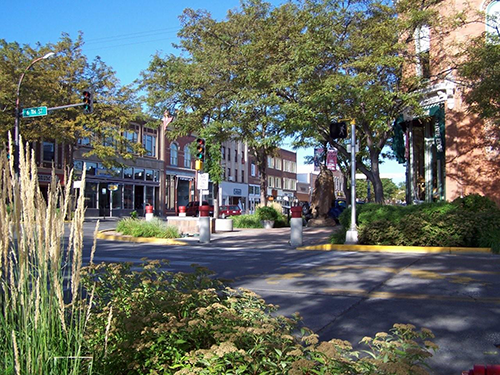May 23 2016 Addressing Rapid City’s most pressing social issues through collective impact
 A new collective impact initiative in Rapid City, South Dakota, was unveiled at a press conference last Wednesday. Rapid City Collective Impact (RCCI) will engage a range of government agencies, non-profits, philanthropic organizations, and businesses to tackle the city’s most pressing social issues. Instead of choosing one of the community’s problems to address via collaborative efforts, the initiative will consider a range of interconnected issues — preliminary discussions have included issues like race, housing, and drug abuse as areas of potential focus.
A new collective impact initiative in Rapid City, South Dakota, was unveiled at a press conference last Wednesday. Rapid City Collective Impact (RCCI) will engage a range of government agencies, non-profits, philanthropic organizations, and businesses to tackle the city’s most pressing social issues. Instead of choosing one of the community’s problems to address via collaborative efforts, the initiative will consider a range of interconnected issues — preliminary discussions have included issues like race, housing, and drug abuse as areas of potential focus.
The collaboration has a broad timeline for its three phases — Through summer 2016, it will remain in Phase 1, “The Year of Learning,” which involves meeting with organizations and businesses throughout the city to introduce potential stakeholders to RCCI’s work and goals, and gather information. So far that work has resulted in an impressive network map (available here with password rcci2016) of all the organizations in Rapid City that provide services to those in need. Network mapping is often a key component of Engaging Potential Partners in a collaborative initiative, as it helps partners trace the strength of relationships between actors, organizations, and institutions within a network. Because a portion of RCCI’s work will be to make the social services network easier to navigate and more effective, creating a network map is an excellent place to start.
(For more on network maps, see “System Mapping: A Guide to Developing Actor Maps” from FSG, a highly detailed, 17-page resource that is well suited for practitioners looking for in-depth guidance on creating an actor map. We suggest that partners use their actor map to identify individuals and organizations that have a stake in the issue the collaboration wishes to address, to understand their relationships to each other, and, ultimately, to reach out to potential partners. Free registration required.)
In addition to network mapping and exploratory conversations with leaders from non-profits, businesses, faith-based organizations, and government, the initiative has also been conducting focus groups across the city to discover what it’s like for people in need, reports the Rapid City Journal. The leaders of the focus groups spoke to Rapid City residents about people they know who have needed help, asking questions like “What did the person do, and how did they navigate the system?”
The next step for RCCI is a workshop this week with 100 city leaders and residents to refine the list of community problems that need to be addressed, further honing in on the collaboration’s vision of success. Sharing a Vision of Success helps to further link stakeholders together and create a mutual understanding of the benefits of success. Mayor of Rapid City Steve Allender is already working to create a shared understanding of the some of the potential benefits of the collaboration: “When you see a homeless person sleeping under a bridge, that person costs the taxpayers tens of thousands of dollars without really much hope of bringing them out of that situation,” he said at the press conference on Wednesday. “Certainly there will be less expense if we are able to find a way to get the services to that person and rehabilitate them.”
This fall, RCCI will move into Phase 2 of its work, which it calls “The Year of Connecting.” This process will involve beginning to provide assistance to non-profits for service delivery, facilitating new collaborative efforts and networks, and helping non-profits understand the importance of benchmarking in a collaborative environment, “with the goals of improving performance, decreasing duplication, decreasing gaps in service, and increasing community connectedness.” All of this work will build to “The Year of Change,” where the collaboration will leverage the skills and expertise of grassroots residents, businesses, non-profits, and government to create “collaborative ways where everyone contributes to improve life and living in Rapid City.”
RCCI is an ambitious cross-sector collaboration with a long-term plan for enacting change on several issues throughout Rapid City. Its commitment to planning and hearing the perspectives of diverse stakeholders before moving into implementation bodes well for its future success.
